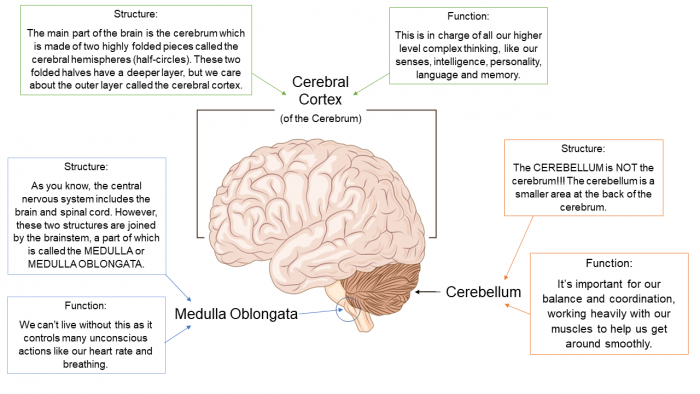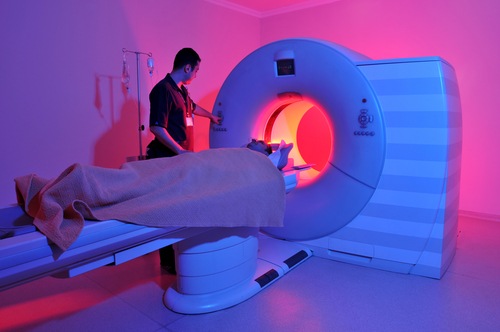The brain is a complex structure that controls everything you are and do!
Our personalities, breathing and even our ability to walk are dependent on the following three structures: the cerebral cortex, the cerebellum and the medulla oblongata.

Investigating the brain
Finding out how our brains work is vital for medicine and neuroscience, and studying brain function has led to some amazing technological advances such as the MRI machine.
This scanner uses strong magnetic fields and radio waves to map which regions of the brain perform certain functions by electrically stimulating patients who have brain damage and seeing which parts of the brain are active during a particular task.

Problems with investigating brain function
So, with these huge advances in science and medicine, surely we would know exactly how the brain works by now?
Unfortunately, we’re far from it!
The reason we still have so many unknowns comes down to problems with investigating brain function using patients with brain diseases:
Firstly, people with brain damage don’t tend to live very long.
Secondly, brain damage from injuries is actually quite rare.
Also, not all sick people are willing to take part in research, which has to have consent.
There are ethical questions about consent too, as if a person has too severe brain damage, they can’t make a decision alone, and so it falls to their distraught families to decide about consent, and so, while research can save lives, the moral aspect is very challenging.
Treating brain disease

Treating brain disease is also very problematic, as sometimes intervention can do more harm than good. Brain illnesses can affect a person’s personality and level of alertness, and it can be harder to cure aggressive or unconscious people, meaning that sometimes a healthy person ends up needing lifelong care.
All treatments of the nervous system, especially operations, are very specialised and not many doctors are trained to do these very fragile and detailed procedures. When you expose the brain, it’s very hard to access all parts of it because of its tightly packed structure and, of course, any mistakes can make the patient even sicker and could even cause irreversible damage in an area that was healthy beforehand.
Let's have a go at some questions now.







